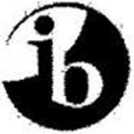tok tematy

f
f

International*
Baccalaureate
Theory of knowledge prescribed titles
November 2008 and May 2009 Instructions to candidates
Your theory of knowledge essay for examination must be submitted to your teacher for authentication. It must be written on one of the ten titles (ąuestions) provided below. You may choose any title, but are recommended to consult with your teacher. Your essay will be marked according to the assessment criteria published in the Theory of Knowledge guide. Remember to centre your essay on knowledge issues and, where appropriate, refer to other parts of your IB programme and to your experiences as a knower. Always justily your statements and provide relevant examples to illustrate your arguments. Pay attention to the implications of your arguments, and remember to consider what can be said against them. If you use external sources, cite them according to a recognized convention.
Notę that statements in quotations in these titles are not necessarily authentic: they present a real point of view but may not have been spoken or written by an actual person. It is appropriate to analyse them but it is unnecessary, even unwise, to spend time on resęarching a context for them.
Examiners mark essays against the title as set. Respond to the title exactly as given; do nor alter it in any way.
Your essay must be between 1200 and 1600 words in length.
1 “Science is built of facts the way a house is built of bricks: but an accumulation of facts is no morę science than a pile of bricks is a house” (Henri Poincare). Discuss in relation to science and at least one other area of knowledge.
2 When should we trust our senses to give us truth?
3 Evaluate the strengths and weaknesses of reason as a way of knowing.
4 “Seek simplicity, and distrust it” (Alfred North Whitehead). Is this always good advice for a knower?
5 “In expanding the field of knowledge we but inerease the horizon of ignorance” (Henry Miller). Is this true?
6 Compare and contrast our approach to knowledge about the past with our approach to knowledge about the futurę.
7 “Morał wisdom seems to be as little connected to knowledge of ethical theory as playing good tennis is to knowledge of physics” (Emrys Westacott). To what extent should our actions be guided by our theories in ethics and elsewhere?
8 To understand something you need to rely on your own experience and culture. Does this mean that it is impossible to have objective knowledge?
9 “The knowledge that we value the most is the knowledge for which we can provide the strongest justifications.” To what extent would you agree with this claim?
10 “There can be no knowledge without emotion.... until we have felt the force of the knowledge, it is not ours” (adapted from Arnold Bennett). Discuss this vision of the relationship between knowledge and emotion.
Handbook of procedures 2008
€> International Baccalaureate Organi22tion, 2007
Diploma reąuirements, theory of knowledge PageE13
Wyszukiwarka
Podobne podstrony:
IJCSI International Journal of Computer Science Issues, Vol. 7, Issue 3, No 9, May 2010
12 IJCSI International Journal of Computer Science Issues, Vol. 7, Issue 3, No 9, May 2010 www.IJCSI
IJCSI International Journal of Computer Science Issues, Vol. 7, Issue 3, No 9, May 2010
14 IJCSI International Journal of Computer Science Issues, Vol. 7, Issue 3, No 9, May 2010 www.IJCSI
15 IJCSI International Journal of Computer Science Issues, Vol. 7, Issue 3, No 9, May 2010 www.IJCSI
Visit WMrw.SimonSaysSleuth.com for a complete list of Nancy Drew titles, actiwities, a screensaver,
Subiektywne teorie wiedzy (andragogów) jako... 17 Subjective thcories of knowledge (of andragogucs)
przejętych niekontynuowanych czasopism Kluwer. wbn.edu.pl Web of Knowledge - bazy
Druga edycja formatu CCF ukazała się w 1988 roku37, zaś w 1989 roku w International Bureau of Educat
ublicationsGlobal experience The International Association of Oil & Gas Producers (formerly the
International partners of ICIE ❖Aalborg University (Denmark), ❖ University of Neva
BEYONDPHILOLOGY AN INTERNATIONAL JOURNAL OF LINGUISTICS, LITERARY STUDIES AND ENGLISH LANGUAGE
ANALIZA POTRZEB INFORMACYJNYCH W DOBIE INTERNETU1David NicholasDepartment of Information Science Cit
zasobów internetowych. •Web of Science - kolekcja bibliograficzno-abstraktowych baz danych . Indeksu
TABLE OF CONTENTS J Introduction (M. Klimaszewski)............5 Report of the International conferen
więcej podobnych podstron